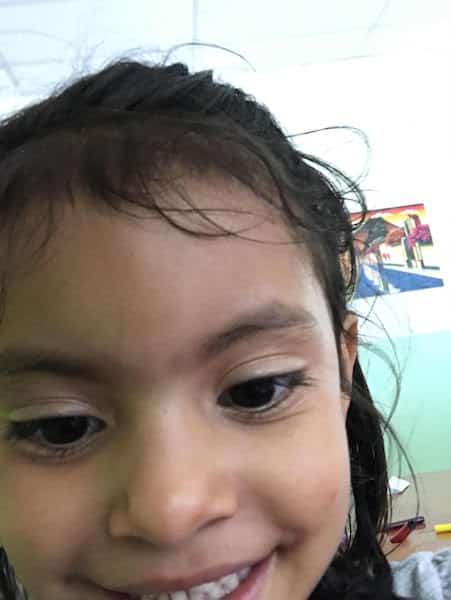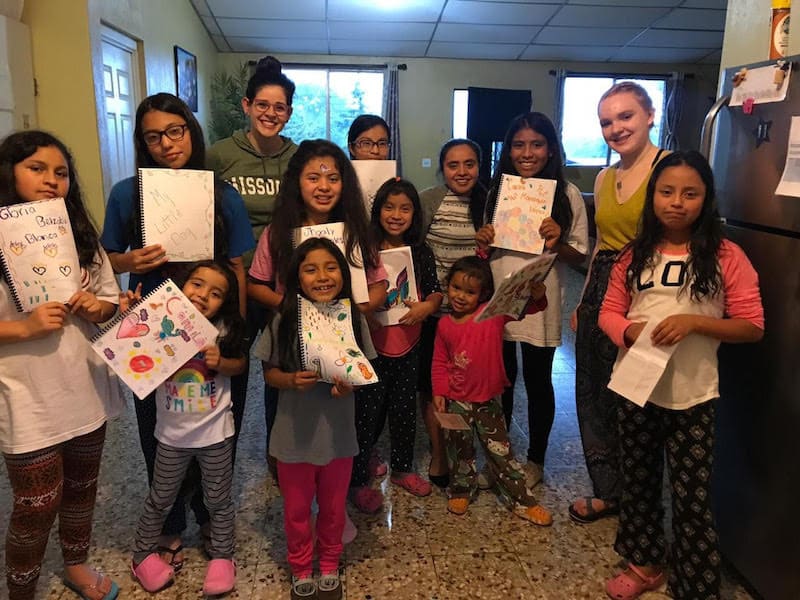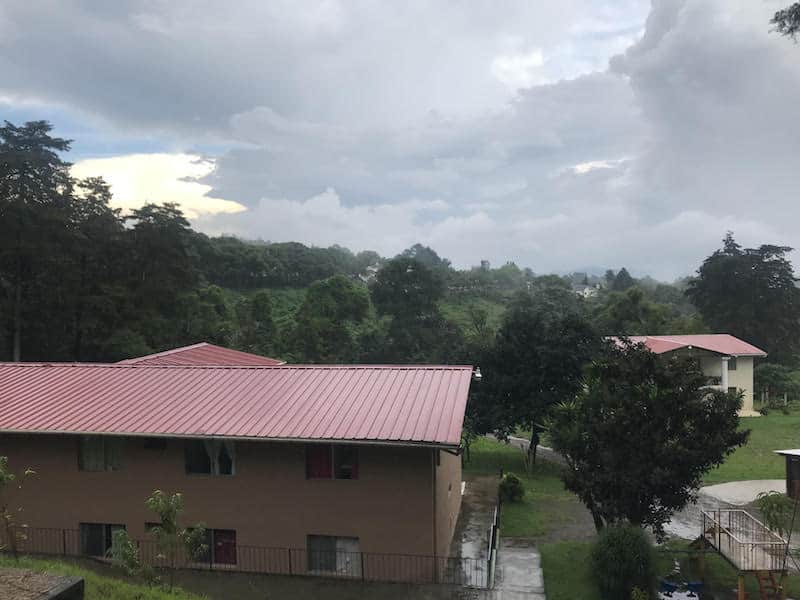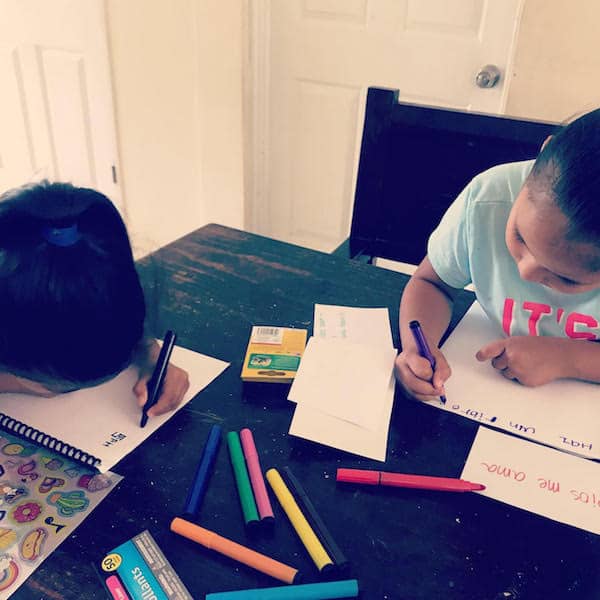She lifted her arms and I pulled a white tank top over her dripping, wet hair. "Camiseta" she said in a sweet, quiet voice. I understood.
She stood there barely wrapped in a towel and I chuckled at how much she reminded me of my daughter at home - no concept of the importance of clothes quite yet.
I found myself sitting on a bottom bunk, careful to not mess up the stuffed animals resting against the pillow.
It was her bed - a friendly space with a colorful comforter and a purple wall that couldn't hide the evidence stickers once adhered to it.

I heard she knew English, or at least understood it, but she barely spoke it. Fortunately, I knew enough Spanish to help her get dressed. After she adjusted her camiseta, she pointed to her shirt. Then, her underwear and size 3 jean shorts.
At six years old, she knew how to select her own clothes yet welcomed my help when I offered to assist her.
"She could probably do this herself," I thought to myself as I handed her each piece of clothing.
With 15 children in her home, she'd become very self sufficient already. Yet my heart told me to stay and help. After her last step, switching out her shower shoes for socks and tennis shoes, she ran out the door to get her hair braided before going outside to play.
I lingered on her bed for a few seconds longer, sensing that I'd just experienced a pivotol moment for my week in Guatemala.
Once I got home, I understood why.

Coming home to a migrant kid crisis
Upon returning home, I caught the news of the neglect of migrant kids by the U.S. The little girl's face immediately rushed into my mind.
While at the orphanage, I learned she was there because the U.S. sent her back to her country. Her parents' whereabouts were unknown, several minds speculated at the many places they could be. I found myself amongst many others wondering what happened to her:
- How did she get separated from her parents?
- How long had she been in the U.S.?
- Were those who handled her nice and compassionate?
- How did she make it back to Guatemala and put into the orphanage's care?
- What did it feel like to be treated like an orphan yet know your parents are out there?
- Did her parents risk everything because they wanted to build a better, safer life; or, were they "bad" people coming illegally across the border?
I had more questions than answers and worked hard to not make any assumptions to answer them. But meeting her taught me something major: these weren't "issues" and "conditions" to be dealt with at the border, but actual people's lives.
 Solutions to hard immigration questions
Solutions to hard immigration questions
Some may read this post and feel it's fortunate (if you can call it that) this little girl wound up in a safe, loving place in her own country. But, she's still separated from her parents with an unknown future and a suitcase full of trauma she's now pulling behind her.
She's one of thousands with a family that hoped the U.S. would be a game-changer for them yet sadly, that's not the case.
After a week in Guatemala, I boldly write "sadly" because here's what I learned:
The U.S. has A LOT of resources to share.
A LOT of room to offer.
And MANY talented, equipped, passionate people ready and willing to help.

Life in the U.S.
Honestly friends, I don't know anyone in the U.S. who lives like those at the orphanage I just visited. Ranch-style homes with three to four bedrooms sleeping anywhere from 4-9 kids each. Routines and chores teaching a dozen kids at once how to care for a home they pray isn't theirs forever. Wooden cubbies serving as closets with everything they own fitting into one small space.
Don't get me wrong - the orphanage is an amazing, blessed place.
But it's nothing like the life most of us in the U.S. live, and I can't help but wonder why we aren't more willing to share. I feel like racism is at play if I"m being honest.
Our proposed answers of "lock them up," "send them back," or even simply "let them flood in without any process or protocol" when it comes to the migrant crisis are not acceptable from one of the wealthiest, most blessed and resourced countries on the planet.
Let's be smart, step forward in unity and have compassion toward fellow human beings. Let's come up with a plan that prioritizes a few things:
Migrants are people who deserve compassion and a chance to tell their stories.
Families deserve to stay together - this is best for adults and children.
Kids can't care for themselves, as adults - that's our role.
Processes and protocols can always change.
Migrants and refugees arriving at the U.S. border are fellow human beings who deserve to be seen, cared for and heard. They may not speak our language, and they may test and stress our processes, but they're deserving and worthy of the same opportunities, compassion and love we, along with most of our ancestors, received.
This is what taking a few moments to help a six-year-old Guatemalan girl living at an orphanage get dressed taught me.

Leave a Reply